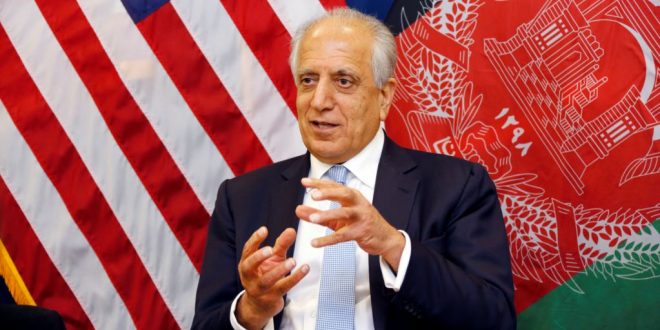In an unexpected turn of events, the US special envoy for Afghanistan reconciliation, Zalmay Khalilzad, has publicly asked India for the first time to discuss its terrorism-related concerns directly with the Taliban. Since the relative passivity in the peace process with the Taliban, partly due to the COVID-19 pandemic, Khalilzad has yet again embarked on the Afghan peace quest and resumed shorty forays to Doha, Delhi and Islamabad. During his stopover in Delhi before heading to Islamabad, he acknowledged that India played a significant role in Afghanistan’s development but stayed aloof from international peace efforts. This is the first-of-its-kind comment being made by a US official for direct dealings between India and the Afghan rebel outfit. But a drawback of this development is that Delhi deems the Taliban a terrorist group to date, accusing rival Islamabad of supporting it and has thus distanced itself from any talks so far in regarding Afghanistan. The recent overt offer by Khalilzad to India, which could play a “more active role” in the Afghan reconciliation process as he put it, is congruent with the concept of achieving regional consensus for peace in Afghanistan. As India constitutes a major player in the region’s politics and has remained a friendly country to Afghanistan, it’s probable that India’s involvement could be effectual but challenging. Effective in a sense that the country enjoys considerable influence in Afghanistan – except the Taliban – but likely problematic as well because Islamabad deems itself the architect and achiever of the US-Taliban peace pact and it obviously doesn’t want to share that credit with anyone – let alone its archrival India. Therefore, there is a risk of Afghanistan becoming a power struggle arena for these two countries. Khalilzad’s recent travels to Doha, Delhi and Islamabad, are seemingly predominantly aimed at ironing out an impasse in the agreement over the release of prisoners and intra-Afghan negotiations – for which regional harmony is necessary. In his meeting with Pakistani officials, Pakistani Chief of the Army Staff Gen. Qamar Bajwa stated that Pakistan’s support for the Afghan reconciliation process is proof of its sincerity for peace in Afghanistan. But that’s just paying lip service to the Afghan peace process on the part of Pakistan. It’s because if there is the slightest possibility for India becoming involved in Afghanistan in any manner, Pakistan would see to it and create hurdles by reverting back to being a spoiler – a role the country has temporarily shunned due to constant US pressures. However, it shouldn’t be so. Pakistan should understand that if truly is sincere in matters of Afghanistan, the ultimate goal which is achieving – something that matters above all – should be pursued in any manner possible, even if it means reaching a consensus among rivals in the region.

 Afghanistan Times
Afghanistan Times



